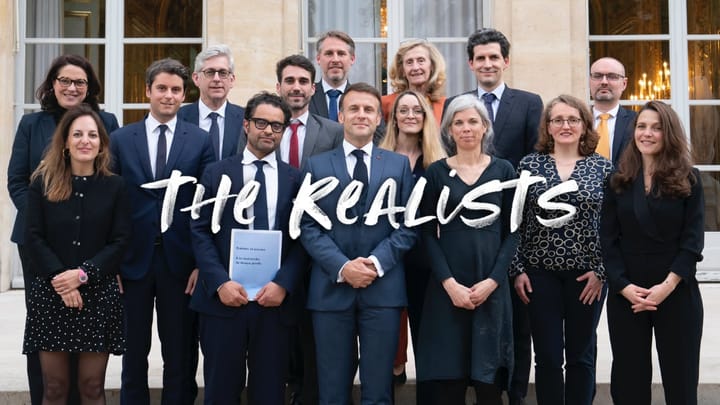5 stories about Big Tech to improve your digital literacy skills
Unmasking illusions about Big Tech: on AI hype, hoaxes and privacy violations

If you were to ask me what is my favorite book on the subject of technology and digital mindfulness, I wouldn't hesitate for a second: it is, without doubt, Neil Postman's Technopoly: The Surrender of Culture to Technology - published in 1993 but still extremely relevant today.
Acclaimed cultural critic Neil Postman wrote:
Technopoly is a state of culture. It is also a state of mind. It consists in the deification of technology, which means that the culture seeks its authorization in technology, finds its satisfactions in technology, and takes its orders from technology.
To the late Postman (he passed away in 2003), education is the best remedy to counteract the negative effects of this "technopoly." Postmas wrote: "education as an excellent corrective to the antihistorical, information-saturated, technology-loving character of Technopoly."
As a Realist, if I had one wish, it would be for everyone to be more media savvy, to be better versed in media literacy - and especially digital literacy. I notice how we often take new announcements by Big Tech at face value, never questioning the agenda behind innovations and new product launches. The current AI hype is a perfect representation of what Postman warned about.
Here are five stories about Big Tech to increase your digital literacy skills.
1: Amazon's AI Lies
Have you ever heard of Amazon's Mechanical Turks? According to Wikipedia:
Amazon Mechanical Turk is a crowdsourcing website with which businesses can hire remotely located "crowdworkers" to perform discrete on-demand tasks that computers are currently unable to do as economically. It is operated under Amazon Web Services, and is owned by Amazon.
Well, as it turns out, the service takes its name from an elaborate hoax from the late 1770s: a chess playing machine that was touted to play a game of chess against a human opponent. It wowed royals and crowds in Austria and then in tours across Europe and the United States. After 8 decades of public demonstrations, it was ultimately revealed to be a fraud: a human operator hid inside of it to play against an opponent.
It's supremely ironic that the term "Mechanical Turk" has been made widely known by Amazon. Because this week the company was embroiled in a mechanical turk-like scandal that made headline news around the world. From MSN: "Amazon’s 'Just Walk Out' tech relied on low-paid Indian workers, not AI". In case you are not familiar with Amazon Fresh stores, they are modern grocery stores that allow people to walk around, add items to their carts and leave without passing by a checkout line or paying a cashier - thanks to a technology called "Just Walk Out" which was supposedly powered by cameras and artificial intelligence.
The MSN article explains:
The Information reported that even though Amazon claimed that it used a host of cameras and sensors around the store to track what customers grabbed, hundreds of Indian workers were used by the company to track customers instead of relying completely on AI and technology.
Yes, you read that correctly. An awe-inducing technology heavily promoted by Amazon turned out to be 1,000 low-paid workers in India, watching and labeling videos of customers shopping in Amazon Fresh stores.
2: Google and its Fake AI Demo
On the subject of AI hype and faking the capabilities of an “artificial intelligence” system, there is this December 2023 story about Google. The company was caught red-handed, faking a demo of its new AI system. From TechCrunch: “Google’s best Gemini demo was faked”.
Google’s new Gemini AI model is getting a mixed reception after its big debut yesterday, but users may have less confidence in the company’s tech or integrity after finding out that the most impressive demo of Gemini was pretty much faked.
If you are curious, you can watch the faked demo on YouTube – which included heavy editing to create the illusion of a brilliant AI system.
3: Microsoft’s New Data Collection Service
If you use Microsoft Outlook as an email client, it's time to reconsider your options. This detailed report by Proton Mail is a must read: “Outlook is Microsoft’s new data collection service”.
Proton’s Edward Komenda writes:
Everyone talks about the privacy-washing campaigns of Google and Apple as they mine your online data to generate advertising revenue. But now it looks like Outlook is no longer simply an email service; it’s a data collection mechanism for Microsoft’s 801 external partners and an ad delivery system for Microsoft itself.
The company is also now storing email passwords from external clients, granting unprecedented access:
When you sync third-party email accounts from services like Yahoo or Gmail with the new Outlook, you risk granting Microsoft access to the IMAP and SMTP credentials, emails, contacts, and events associated with those accounts, according to the German IT blog Heise Online.
Komenda explains:
A deeper dive into Microsoft’s privacy policy shows what personal data it may extract:
Name and contact data
Passwords
Demographic data
Payment data
Subscription and licensing data
Search queries
Device and usage data
Error reports and performance data
Voice data
Text, inking, and typing data
Images
Location data
Content
Feedback and ratings
Traffic data
Bonus digital literacy points: it's worth pointing out that this exposé about Microsoft comes from ProtonMail - a Swiss end-to-end encrypted email service that is one of its competitors. While the evidence Proton shared is accurate, it's important to remember it's in their vested interest to get Microsoft users interested in ProtonMail services.
4: Facebook snoops on Snap users with “Project Ghostbusters”
From TechCrunch reporter Lorenzo Franceschi-Bicchierai:
Meta tried to gain a competitive advantage over its competitors, including Snapchat and later Amazon and YouTube, by analyzing the network traffic of how its users were interacting with Meta’s competitors. Given these apps’ use of encryption, Facebook needed to develop special technology to get around it. […] Facebook’s engineers solution was to use Onavo, a VPN-like service that Facebook acquired in 2013. In 2019, Facebook shut down Onavo after a TechCrunch investigation revealed that Facebook had been secretly paying teenagers to use Onavo so the company could access all of their web activity.
This story is a routine reminder to check the trustworthiness of your VPN service - if you are using one. If you are using a free VPN, there is a high likelihood that the service is tracking, profiling (and possibly reselling) your traffic data. This story from The Next Web may be 6 years old but is as relevant as ever: “Be cautious, free VPNs are selling your data to 3rd parties.”
5: Apple’s Gatekeeping
The Daily Show host Jon Stewart invited Federal Trade Commission chair Lina Khan to appear on his show. He revealed to her how, when he was hosting his (now cancelled) Apple TV talk show The Problem with Jon Stewart he had expressed an interest in interviewing FTC chair Khan – but Apple TV turned down his request, openly asking him to refrain from interviewing her.
From Variety:
Considering Khan’s work at the FTC targets tech giants’ monopolistic practices, Apple allegedly did not want Stewart bringing her on the program to presumably talk about such topics. […] Stewart went one step further and said Apple didn’t even want him talking about the perils of AI on his podcast. He said “they wouldn’t let us do even that dumb thing we just did in the first act on AI,” referring to a near 15-minute segment Stewart did earlier in the show in which he criticized the rise of AI and spoke about how it’s making human workers obsolete.
Stewart said to Khan on his Daily Show: “Like, what is that sensitivity? Why are they so afraid to even have these conversations out in the public sphere?” And Khan responded: “I think it just shows the danger of what happens when you concentrate so much power and so much decision making in a small number of companies.”
It should not be surprising that Apple didn’t want an episode about the perils of AI on Apple TV - considering that Apple is now trying to catch up with OpenAI, Google Gemini and Anthropic. The company is expected to reveal its AI plans at his developer conference in June 2024.
Is there any story that surprised you about the state of tech or the hype surrounding AI? Share your thoughts in the comments.
As always, thanks for being here.
Elena
💌 Did you enjoy this post? Share it with a friend!
☁️ You can follow me on Mastodon (my favorite network), Bluesky and Threads. All my other social media links are available here.
📽️ If you'd like to support my work, you could buy or rent my documentary The Illusionists on the globalization of beauty. Watch the opening:

✏️ If you'd like to say hi, my contact information is here
💬 If this post resonated with you, please leave a comment!





Comments ()